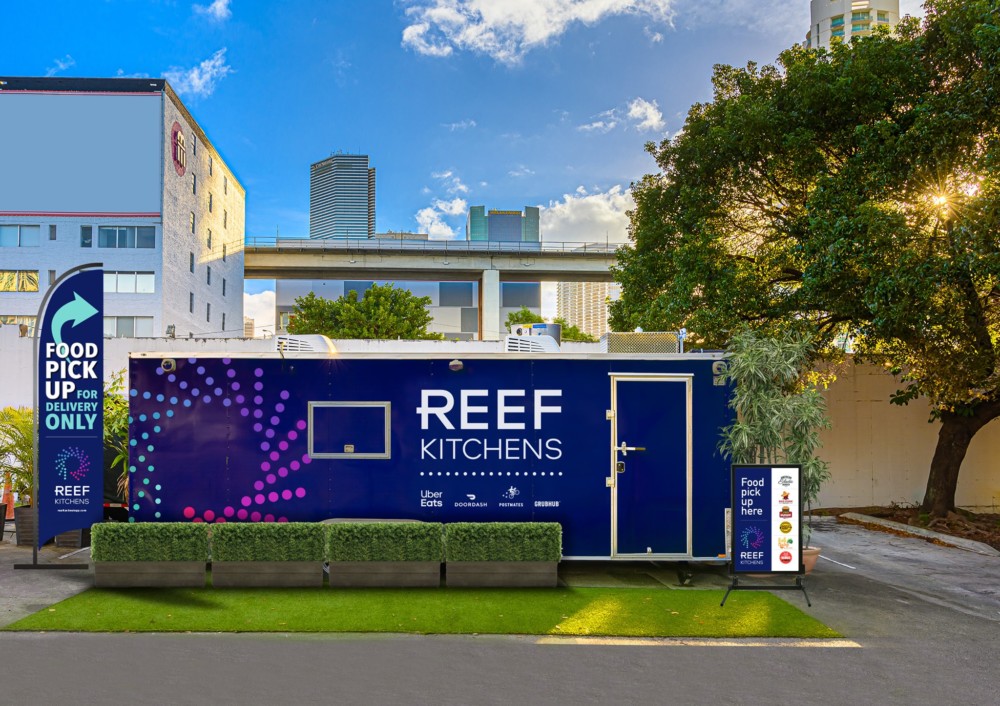By Rob Wile
Miami Herald
WWR Article Summary (tl;dr) As Rob Wile reports, “REEF’s model involves investing in underutilized urban real estate, especially parking lots, and leasing them out as staging areas to businesses specializing in delivering goods and services. Its Neighborhood Kitchens are already being tapped by most major food delivery apps, like UberEats, as well as local restaurateurs like Della Heiman’s della bowls.”
Miami
Miami-based REEF, best known for its so-called ghost kitchens that provide off-site food delivery, announced Tuesday it had raised a total of $1 billion to expand its operations.
A growth equity funding round of $700 million is being led by United Arab Emirates-based Mubadala Capital in partnership with SoftBank’s Vision Fund and other investors. REEF is also raising $300 million through Oaktree Capital Management, L.P., to acquire additional real estate assets.
REEF’s model involves investing in underutilized urban real estate, especially parking lots, and leasing them out as staging areas to businesses specializing in delivering goods and services. Its Neighborhood Kitchens are already being tapped by most major food delivery apps, like UberEats, as well as local restaurateurs like Della Heiman’s della bowls.
“We are excited for this next stage of growth and are committed to continue learning, listening and working with our communities to reimagine urban real estate into localized and networked infrastructure that entrepreneurs and cities can use to deliver goods and services sustainably and directly to our neighborhoods,” said CEO Ari Ojalvo in a release. “By working together, we can reimagine and rebuild our urban spaces for people, not just cars, and help our cities become more sustainable and inclusive centers of community and opportunity.”
The announcement is a sign that competition to capitalize on the trend toward food delivery is accelerating. REEF’s chief rival, CloudKitchens, founded by former Uber CEO Travis Kalanick, “has been quietly assembling a mini real-estate empire over the past two years,” the Wall Street Journal reported last month. CloudKitchens has spent at least $130 million over that period, the Journal said. Virtual Kitchen Co. and Kitchen United are other players in the industry.
But REEF has been aiming for businesses beyond food. In addition to its Neighborhood Kitchens business, REEF has previously announced partnerships with DHL for last-block e-cargo bike delivery, and has opened COVID testing sites and pop-up clinics with Carbon Health and BioReference.
“We believe REEF’s conversion of city parking lots into urban logistics hubs makes them much more useful than in their current form,” said Ervin Tu, managing partner of SoftBank Investment Advisers, in a release. “As we have witnessed during the pandemic, proximity to the consumer is increasingly important in today’s economy.
canadian pharmacy https://langleyrx.com no prescription
We’re excited about management’s vision of transforming and revitalizing the urban center, and are confident in REEF’s ability to execute.”
In December 2018, REEF, then known as ParkJockey, announced an undisclosed funding round from Mubadala and Softbank that valued it at more than $1 billion — a unicorn in tech parlance.
___
Distributed by Tribune Content Agency, LLC.















































































































































































































































































































































































